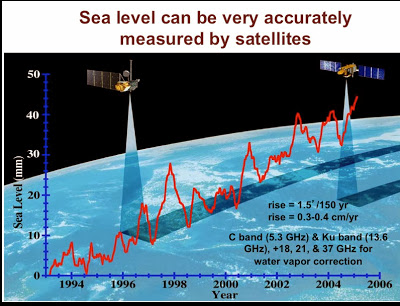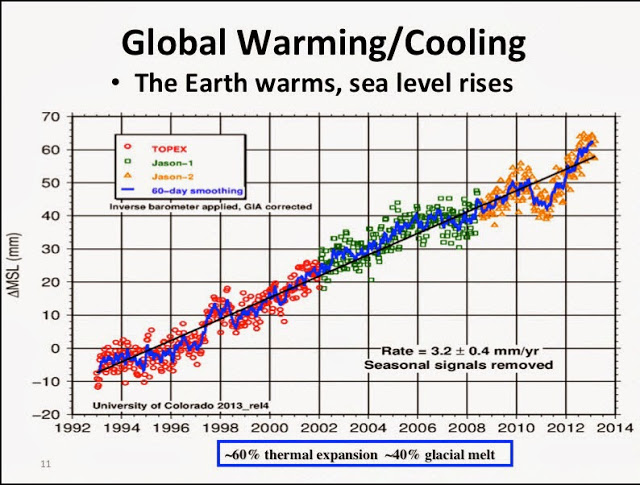

| Visitors Now: | |
| Total Visits: | |
| Total Stories: |

| Story Views | |
| Now: | |
| Last Hour: | |
| Last 24 Hours: | |
| Total: | |
Satellite Climate Records: Observations, Not Beliefs
Satellite data may provide the best evidence yet for anthropogenic global warming.
Compton Tucker, scientist at NASA’s Goddard Space Flight Center in Greenbelt, Md., delivered that thought in a bonus Frontiers in the Environment lecture last Thursday on the University of Minnesota’s St. Paul campus.
In his presentation, “Satellite Climate Records: Observations Not Beliefs,” Tucker used satellite data to address some of the most common arguments from climate change deniers.
“Satellite data since the 1970s have revolutionized our study of climate because they provide imagery of the Earth’s surface, of the atmosphere, of the oceans, of the cryosphere in a spatially continuous and time-varying way,” Tucker said. “so we’re able to look at changes over time.”
Tucker discussed various metrics used to prove climate change, including sea levels and solar irradiance.
“Sea level is the paramount or the simplest way of telling whether the planet is cooling or warming,” he said. “Then you look at the sun and see if the sun is constant. Maybe the sun is diminishing, that would cool the planet. If it’s increasing, that would warm the planet. But the sun has been constant.”
These factors, along with mass losses in the Arctic and a more active hydrological cycle provide ample evidence of climate change, according to Tucker.
Tucker attributes climate change to rising carbon dioxide levels. While CO2 isn’t the strongest greenhouse gas, it has some of the longest lasting effects due to its lengthy residence time. When you drive to the grocery store or a friend’s house, you emit CO2. In 100 years, one-third of that CO2 will still be in the atmosphere; in 1,000 years, one-fifth of it will remain.
“Several students have told me, ‘I was talking with my mom or my dad and they said all this talk about carbon dioxide warming the Earth is crazy because water vapor is a much stronger greenhouse gas,’” Tucker said. “Well, that’s true, but the residence time of water vapor is on the order of days. It rains and snows out. Carbon dioxide is the guest which lingers. This is why we have to minimize our flux of fossil fuels to the atmosphere.”
Misunderstandings and misinterpretations like this are fueling the skepticism surrounding climate change, according to Tucker. Too frequently, climate change deniers focus on one anomaly in the data and fail to see the larger climate trends, he said.
In order to better understand these trends, Tucker believes research should focus less on creating new technology and more on longer-term data collection.
“Continuity is very important,” he said. “We have most of the instruments. They could certainly be improved in some ways and there are some needs perhaps for some new instruments, but we have an amazing suite of data we can continue using. What we need is to extend these measurements through time.”
As for how to combat the effects of global warming, Tucker is optimistic and knows innovation is key.
“Personally, I don’t quite know what to do,” he said, “but I have a great deal of faith in the younger generation, and it is only by focusing upon observations and rational discussion where we use logic and observations that we can move forward.
“Someone said, ‘We shouldn’t forget, the Stone Age didn’t end because we ran out of stone. We found better ways of doing things and they were called metals.’ I’m sure we can do the same thing here.”
Watch Tucker’s full presentation online.
John Sisser is a communications assistant with the Institute on the Environment.
@ Satellite Climate Records: Observations, Not Beliefs | Institute on the Environment | University of Minnesota:
Source: http://gmopundit.blogspot.com/2013/11/satellite-climate-records-observations.html





